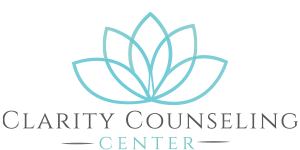
Healthy Boundaries: Why, When, and How to Say “No”
So many of us experience difficulty saying something as simple as “no.” We feel obligated, or even forced, to agree to everything requested of us, often without considering the toll this may take on our physical, emotional, and mental well-being. While helping others is important to our individual relationships and to society as a whole, the ability to establish and maintain well-defined boundaries is essential to a healthy life. We have all heard the phrase, “You can’t pour from an empty cup.” Taking the time, space, and energy we need for self-care allows us to explore our own ambitions and dreams so we may cultivate the lives we want, and it also enables us to offer our best selves to family and friends.
While setting boundaries can be difficult, it allows us to focus on what is most important to us. As with any change, we are likely to experience a certain amount of uneasiness while we are learning to do this, but as author Brené Brown suggests, we can decide to “choose discomfort over resentment.” It is helpful to emotionally prepare for when and how we will begin to set boundaries.
The first step in establishing healthy boundaries is to reflect on relationships or areas in our lives in which our boundaries need repair. Where or when has a lack of boundaries led to feelings of resentment, frustration, disappointment, anger? Does this happen most often with a particular person? At work or at home?
One of the most useful tools for this type of self-reflection is journaling. Through journaling, we can evaluate where adjustments are needed and consider how we may begin to assert ourselves to that end. It also helps us identify our priorities and goals so we may make conscious choices about where and how we dedicate our time and energy, which are precious and limited commodities. Do you want to spend more time with family? Do you need to set aside time to exercise or meditate? Have you been interested in taking a class or trying something new? Once you have identified your priorities and goals, assess how much attention you currently devote to these areas. Could you reallocate some of your time and energy to these areas by setting limits in others?
Armed with this new awareness of what is most important to you, consider these priorities when faced with future decisions. When presented with a request you are unsure of, remember that an immediate response is not necessary. Give yourself time to determine what is best for you. It is perfectly acceptable to reply, “I’ll consider it, but I need some more time” or “Let me get back to you.”
You can use responses such as the examples below to powerfully and politely decline requests that you determine may not align with your priorities and goals or that may overly deplete your resources:
-
Thank you for thinking of me, but I can’t commit to that right now.
-
That is not going to work for me.
-
I don’t have that to give right now.
-
I have to say no for now. I will let you know if anything changes.
Be prepared to experience discomfort when saying “no.” You may feel guilty, as if declining means you are selfish, when, in fact, establishing boundaries allows you to be more present, genuine, and generous with others as well as with yourself. In these uncomfortable moments, recall your priorities and recognize the need to protect your time and energy. It can also be helpful to remember that when we value self-care and assert ourselves, rather than succumb to “people pleasing,” we set a positive example for those around us. By being true to ourselves, we give others the freedom to do the same.

